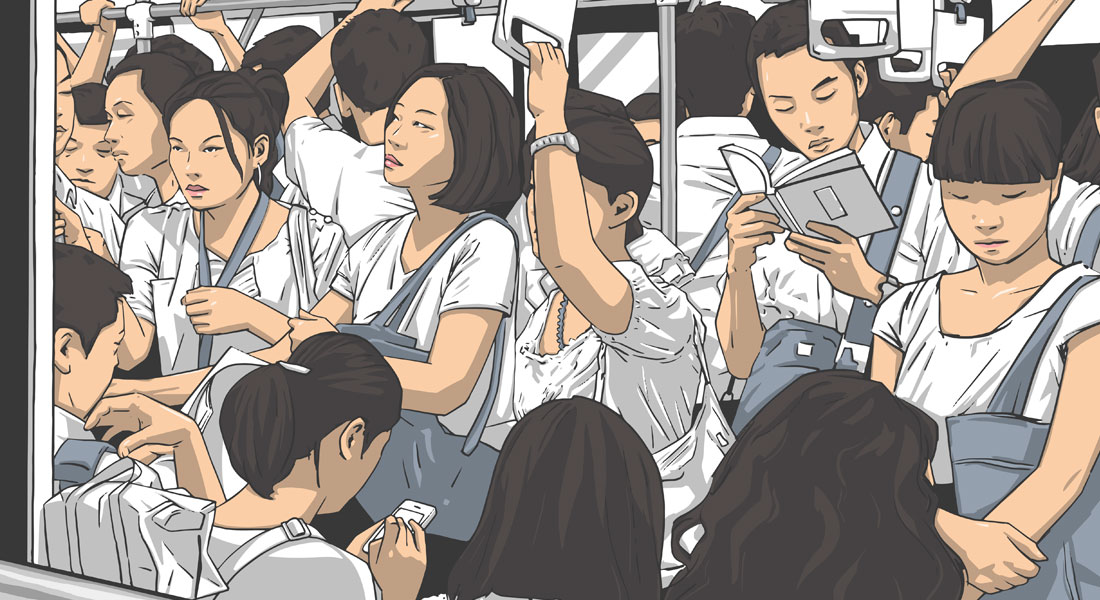


The word is suddenly everywhere, especially in current political talk in the USA where it has crash-landed among all of the other buzzwords and polarizing topics. “Being conscious of racial discrimination in society and other forms of oppression and injustice”, reads one definition of “woke”. More directly, it is derived from the idea of an “awakening”. It’s now mostly used to describe any efforts towards fighting racism, sexism or homophobia, or efforts towards diversity – and typically by detractors of these efforts. We find it also most often tied to media: for example, someone using the word “woke” to describe movies, series, social movements, ads, etc.
It's true that the corporate world now engages in a lot of window-dressing about social issues. The debate about whether or not it is a business or media corporation’s job to address social issues and to want to “right” historical “wrongs” is for sure a fierce and interesting one. Now the word “woke” (mostly,as detraction) has made its way to politics: in Florida, for example, a recent law proposal called the “Stop WOKE” act tried to limit discussions on race and racial privilege. But who is restricting whose rights to say what, is a conversation requiring nuance and case-by-case analysis.
In any case, the backlash to the idea of “woke-ism” has been intense, and with the backlash comes also a tiredness of the concept itself. “Woke” seems to mean “anything carrying a political message that I don’t agree with”; such message typically falling on the liberal side of social opinion, or anything pro-diversity. Some critics are careful to emphasize – lest they be mistaken for racists – that while they agree with the deeper messages of equality and social justice, what they dislike is the corporate hypocrisy of, for example, seemingly want to discuss race or privilege while keeping their own internal inequalities intact. Or they believe that “businesses should stick to business” instead of ideologies; or manifest that they are tired of pro-diversity and pro-equality messages which feel “forced into” movies, series, or other mass media.
What exactly is “forced” becomes contentious. To some it will feel “forced”, and of course any first-time depiction of groups that were previously marginalized is going to initially be “forced” – by someone who is deciding this group is important. Perhaps any media portrayal of a protagonist who isn’t (or seems not to be) a white heterosexual man now gets called “woke”. Indeed, people dislike feeling that they are being forced to learn something when all they want is some entertainment without political messages. All of this – and the fact that this is still mostly a North American discussion – could be simply a signal of the extreme politicization of everything in the USA, and the fatigue this brings. A lot of people also won’t be receptive to being told that their identities are morally in the wrong. But is media actually doing this, or is this simply a compelling narrative to avoid uncomfortable discussions of things that as a society we should discuss? (Racism, homophobia, sexism, migration – even climate change becomes “uncomfortable”).
Calling something “woke” might then, for many, simply signal a disagreement or discomfort to even address things that need to be addressed: oppressive histories, past crimes against humanity, etc. It’s also wise to remember that when one has belonged to a traditionally dominant group for the entire history of humanity, being asked to share the spotlight seems like “oppression”. But perhaps more emphasis is needed on the should-be-obvious fact that these identities and histories (racial, for example) are collective and not individual: indeed, an individual white person can be dirt-poor, an individual black woman may already be a CEO, or an individual trans person may be trans-phobic themselves. It’s never about individuals – but that is why identities and the belonging to one or another group are inherently political. There’s no wishing that away in the name of “free speech”, “meritocracy” or “individualism”. The economy, and the actions of huge corporations, are political too – and while “going woke” is still not making most companies “go broke”, perhaps less hypocritical window-dressing and more changes towards true equality of opportunity, true meritocracy or true diversity might help convince people that these discussions matter.









